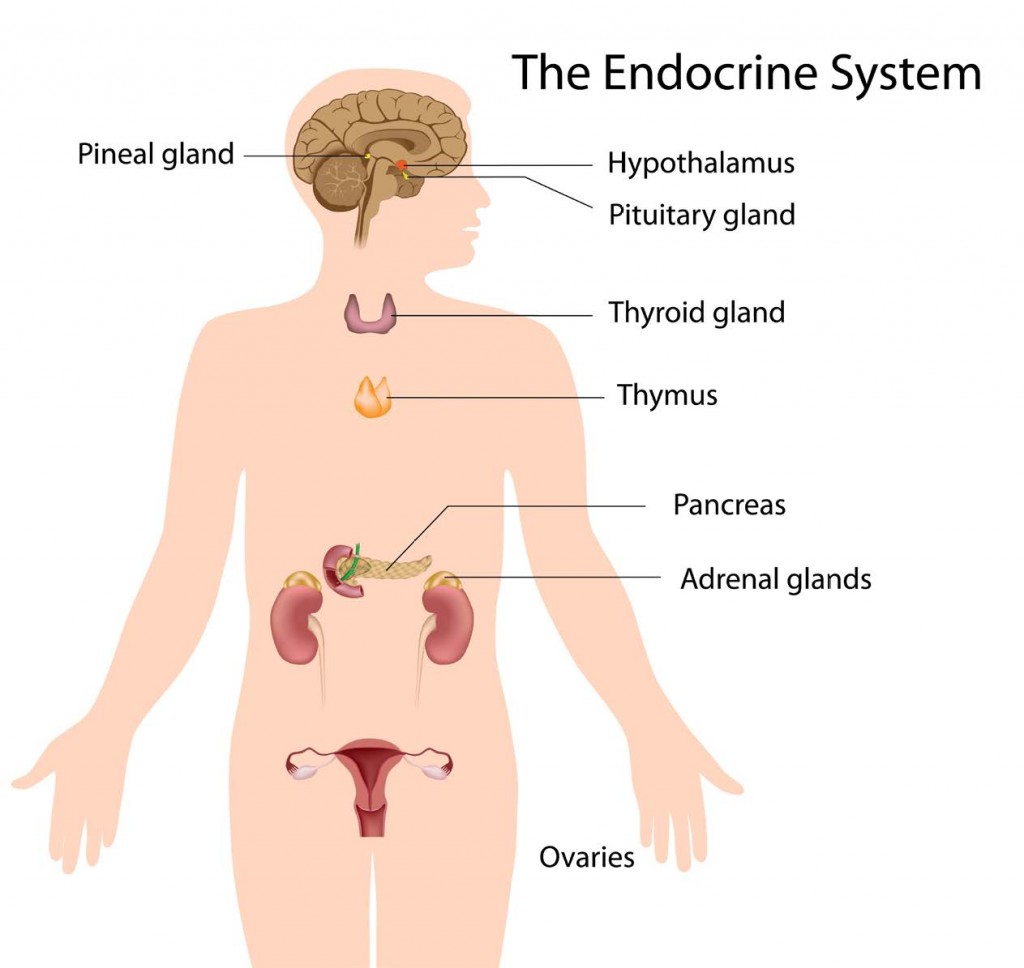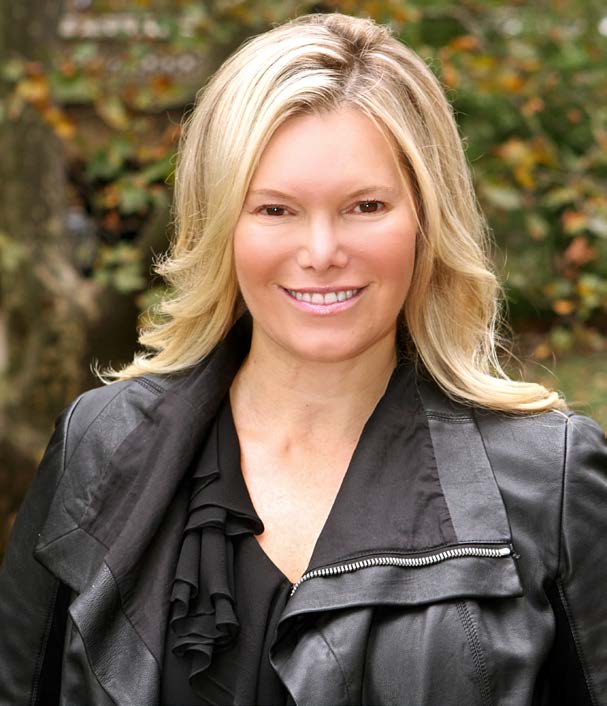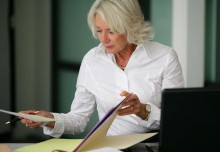Avis Richards is a dynamic and talented producer who is creating a new documentary that every woman should see both for herself and for her family
Avis Richards is a New York based award winning producer, director and philanthropist who founded the Birds Nest Foundation in 2005. Birds Nest is a 501(c)(3) organization that provides other non-profit charities media content at little to no cost. Richards has produced and directed hundreds of episodes and films including Lunch: The Film, Lunch NYC, and Dylan’s Lunchbox. I had the pleasure of working with her during the filming of several episodes of Lunch NYC. In 2012 Lunch NYC was nominated for 4 New York Emmy Awards.
Q: When did you know you wanted to be involved in TV and Movie production?
A: Film production has fascinated me for a very long time. For so long it’s been a medium that required lots of money to create a project. But the advent of video has democratized the platform and dramatically dropped the cost involved in creating a film. That’s when I first saw an opportunity for charities that required video to get their message out but couldn’t afford the high cost of creating a film before the digital revolution.
Today, nothing is more important than the power of media. Whether it be on the big screen, at a film festival, a PSA, or for in-house use, we’re a society that necessitates video content. In turn, video content is the fastest, and most efficient way to spread information, to educate, and to raise awareness.
Q: How do you go about choosing the projects that you work on?
A: Here at Birds Nest Foundation we seek to give every charity a voice. We limit our work to non-profits and we evaluate them on a myriad of factors, from their overall need, their impact, and the type of charitable work they do. From the environment to the arts to medicine, charities of every stripe compete for one of our grants to gain more exposure.
Q: What are the biggest challenges in taking a concept to a final production?
A: The biggest challenge is definitely pre-production. That’s when you have to roll up your sleeves and bring together and under budget all of the scheduling, cast, crew, locations, and props. If you’ve done everything right during pre-production it’s smooth sailing once you get to set.
Our hormones affect our health for our entire lives, and hormone imbalance increases our vulnerability to a wide range of illnesses
Q: What led you to make a movie about hormone balance?
A: I first started researching hormone balance when I was struggling with my own hormone imbalances.
A few years ago, I started feeling unwell and out-of-sorts; the problem went on for a long time. I was achy in the morning, waking up in the middle of the night, lacking in energy, and feeling generally “down.” It felt like constant PMS, but I was still getting my period regularly.
Eventually, I realized that all the problems were hormone-related. I went to my doctors, who gave me the standard line that it “was all part of aging,” and that I should come back once I went through menopause. I was talking to my girlfriends about it, and we realized that we were all feeling the same way, and none of us had any answers. Around that time, I met Jennifer [Howard Kessler, my co-director and co-producer on BALANCE], who was also having similar health problems. With both of us coming from a background of media production, we decided that we needed to bring health education to the forefront, especially regarding women and when they need to start thinking about their hormonal health.
Q: How large a problem is this?
A: Hormone imbalance is a huge problem, but hardly anyone is talking about it, and if they are the advice is conflicting. As I myself found, even our doctors and other healthcare professionals aren’t completely educated about hormonebased health issues and treatments.
Our hormones affect our health for our entire lives, and hormone imbalance increases our vulnerability to a wide range of illnesses, from diabetes to to depression to osteoporosis. Women can suffer from hormonal issues at all ages and at all stages of menopause; some women face hormone problems as early as their twenties. Furthermore, women are not the only ones negatively impacted by poor hormone health. Men and children are just as susceptible to hormone related health issues, and are arguably even less likely to be appropriately diagnosed. This movie will “connect the dots” between hormone-based health issues to examine the common causes.

Q: During your research for the movie, what would you say was the most surprising finding you came across?
A: Many women are not educated about hormones and their effect on the menopause, and I was surprised by the extent to which traditional medicine doesn’t have all the answers.
We are constantly surrounded by environmental toxins, and all of them contribute to toxic estrogen in our bodies and negatively affect our health. I was also surprised by the sheer range of negative consequences caused by hormone imbalance.
Hormone problems interfere with some of the most important systems within our bodies, including the adrenal system and the thyroid. Not being properly balanced can lead to many wide-ranging and long-term health effects and even diseases such as Alzheimer’s.
Q: Following the release of this movie, what impact do you hope it will have?
A: I hope that the movie will help educate women and men about their hormone health, and the impact of hormone balance on our bodies and overall health throughout our lives. I also hope that the movie will result in more awareness among healthcare providers about the impact of hormone imbalance and the treatments available.
At the moment, there is a lack of connection between the healthcare and pharmaceutical industries regarding the treatment of hormone imbalance, resulting in difficulty obtaining the best treatments and advice, and we hope to enable people to make informed choices. Maybe we will even inspire people to seek new solutions!
Please take a look at our website http://BALANCEdocumentary.org, where we will be posting information about all of our findings.
Q: Clearly menopause is a time when certain hormones are not in balance. What message or advice can you offer women about how best to stay in balance during this transition?
A: I would advise women to find a doctor who listens to their needs and will work with them to address their hormone needs. We need to educate ourselves about the need to balance our hormones, and the best ways of doing that. Menopause is a time of unrest, hormonally and emotionally, but can bring new opportunities. Learning how to balance our hormones is the best way to move forward and fully embrace those opportunities. Balancing our hormones allows us to live everyday to our fullest and enjoy every moment of our lives.
I would also suggest that, if you haven’t already, try to add some daily exercise to your routine and try to eat less sugar and caffeine and fewer carbohydrates. Add more fruits and vegetables to your diets. Also, a good dose of “Girlfriend Time” will provide the support every woman needs.






